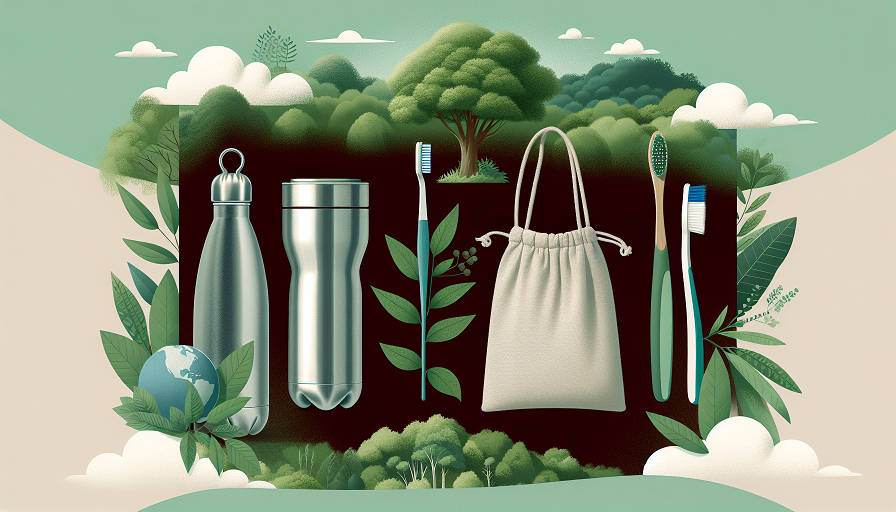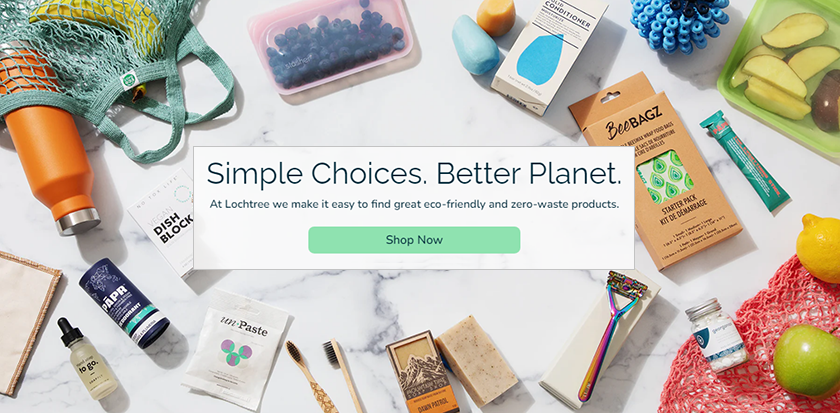
Ready to stop being part of the throwaway culture? Good choice! Zero-waste living is more than just a trend; it’s a lifestyle that helps protect the planet, saves money, and cuts down on clutter. Think of it as a journey toward living with intention and respect for the resources around us. This guide will walk you through the basics, from small daily habits to bigger life choices, to help you reduce waste in every aspect of life.
Contents
Understanding the Zero-Waste Lifestyle
Zero-waste living isn’t about recycling every scrap of paper or composting every peel (though both are great!). Instead, it’s a philosophy that encourages reducing our consumption, choosing sustainable options, and keeping as much as possible out of the trash. In simple terms, it’s about moving closer to “reuse” and further from “replace.” The ultimate goal? To send nothing to the landfill.
Starting Small: Why Every Bit Counts
When beginning this journey, it’s easy to feel overwhelmed. You might see influencers with glass jars full of their entire year’s trash and wonder if that could ever be you. Don’t worry! Zero-waste is more about consistency than perfection. Think of it this way: even one fewer coffee cup tossed out each day makes a difference. So, start where you are and build from there. Little by little, these changes become habits, and those habits make a huge impact over time.
Rethink and Refuse: The First Steps to Zero-Waste
One of the biggest hurdles is breaking up with disposable items, which often feels like trying to say goodbye to an old friend. But ditching disposables doesn’t mean sacrificing convenience. It just means swapping single-use items for ones you can use over and over again.
Learning to Say “No” to Excess
Much of our waste comes from things we don’t actually need—think promotional flyers, plastic bags, and paper napkins. The zero-waste journey often begins with one simple word: “No.” Refusing items that don’t add value or purpose to our lives is an empowering step toward sustainability.
Quick Wins: Refuse These Common Disposables
If you’re wondering where to start, here are a few easy items to refuse on your journey:
- Plastic straws – Opt for a reusable straw or go without.
- Disposable coffee cups – Bring your own mug or tumbler.
- Plastic bags – Use reusable cloth bags instead.
- Single-use cutlery – Carry a travel set or use regular silverware at home.
Reducing What You Consume: Quality Over Quantity
Zero-waste living encourages us to be selective about what we bring into our lives. Each item we buy has a footprint, so choosing less (and choosing better) means making choices that last.
The Power of Intentional Shopping
Most of us are used to grabbing what we need when we need it, often without much thought. But in a zero-waste lifestyle, buying becomes more intentional. When you shop, think about longevity: Can this product last? Is there a sustainable alternative? Is there a chance it could be used multiple times?
Go for the Reusables
Investing in a few quality reusable items can help cut down on waste drastically. Here’s a list of items that can replace hundreds of disposables over time:
- Cloth napkins instead of paper napkins
- Reusable coffee filter or French press over disposable filters
- Beeswax wraps in place of plastic wrap
- Rechargeable batteries
Not only do these items save resources, but they also save money over the long run. While the upfront costs might be a little higher, these items will pay for themselves over and over as you reuse them.
Reuse: Giving Items a Second Life
Sometimes, it’s tempting to throw things out and replace them with shiny, new ones. But reusing is at the core of zero-waste living. It’s about giving items multiple lives, reimagining their purpose, and finding creative ways to make the most of what we have.
Embrace the Art of Repurposing
Repurposing isn’t just practical—it can also be fun! Maybe that glass jar can become a spice container, or an old T-shirt can be transformed into a cleaning rag. These are simple but powerful ways to get more life out of everyday items.
Getting Creative with What You Already Own
You don’t need to be a Pinterest pro to start reusing things at home. Reuse is about practicality and common sense. Before you toss something out, ask yourself: “Could this be used in a different way?”
Recycling Wisely: It’s More than Tossing in the Blue Bin
Many of us see recycling as an easy fix, but it’s not a perfect solution. Recycling requires energy, and certain items are more recyclable than others. Learning the basics of recycling properly helps ensure that what you put in the blue bin doesn’t just end up in the landfill anyway.
Know What’s Recyclable
Different municipalities have different rules, so it’s worth getting to know what’s accepted in your area. Many people don’t realize that items like greasy pizza boxes, plastic bags, or certain types of glass aren’t always recyclable. Check with your local waste management to make sure you’re following their guidelines.
Making Recycling Part of Your Routine
Designate a space in your home for recyclables and take them to the proper facilities if your local services don’t collect everything curbside. You’ll be surprised how much easier it is to stick to a zero-waste routine when your home is set up to make recycling a regular part of your week.
Rot: The Beauty of Composting
Food scraps don’t belong in the trash. Composting not only keeps organic waste out of landfills but also enriches the soil, returning valuable nutrients to the earth. If you’re already reducing, reusing, and recycling, composting is the cherry on top of your zero-waste lifestyle.
How to Start Composting at Home
Whether you have a backyard or live in an apartment, composting is easier than it seems. With a small compost bin, you can turn fruit peels, coffee grounds, and even paper towels into nutrient-rich soil. Some neighborhoods even have community compost programs, so check your local options.
Composting Myths Debunked
Think composting is smelly, complicated, or requires a garden? Not true! With the right setup, composting can be clean, odor-free, and small enough for any home. Just remember to avoid adding meat, dairy, or oily foods to keep things running smoothly.
Embracing Zero-Waste as a Lifelong Mindset
Zero-waste isn’t a one-size-fits-all lifestyle. It’s more of a mindset—a decision to live with respect for the world around us. The goal isn’t to become perfect but to become mindful. Every small change, every choice to reduce, reuse, or recycle, counts. So take things one step at a time, make adjustments as you go, and remember that zero-waste living is less about rules and more about respect.
Why Your Efforts Matter
Every time you refuse a plastic straw, choose a reusable cup, or compost your food scraps, you’re part of a global movement. These choices might seem small on their own, but collectively, they have the power to create real change. Zero-waste isn’t about giving up conveniences—it’s about gaining a life of purpose, resourcefulness, and respect for the environment.

